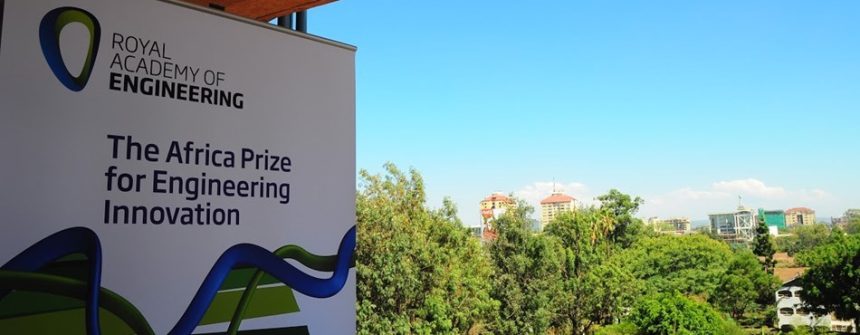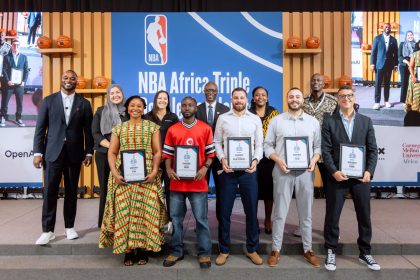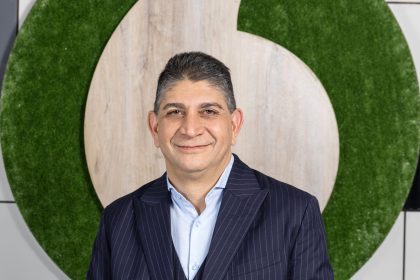Engineering innovations to tackle inequality in the media industry, provide financial services to people who have no access to banking, 3D print customisable orthopaedic equipment for patients, and help farmers generate income from biowaste, have been selected as finalists for the prestigious Africa Prize for Engineering Innovation 2021.
The four finalists – three of whom are women – from Côte d’Ivoire, Nigeria, South Africa, and The Gambia were selected from a shortlist of 16 African innovators for their ability to use engineering to solve problems for African communities. They were chosen after receiving eight months of training, mentorship and support through the Africa Prize, with expert volunteers providing bespoke, one-on-one support on topics including business plans, scaling, recruitment, IP protection, financing, commercialisation, and more. For the first time, Gambian and Ivorian-based innovators are in the running. Both South Africa and Nigeria have seen local innovators win the Africa Prize in previous years.
“All 16 entrepreneurs have developed innovative and sustainable solutions to problems faced by Africans,” said John Lazar. “It has been a remarkable experience to learn about all 16 innovations in the past eight months. These four finalists represent an impressive potential for impact in Africa.”
The Africa Prize for Engineering Innovation, founded by the Royal Academy of Engineering in 2014, is Africa’s biggest prize dedicated to developing African innovators, and assisting them in maximising their impact. It awards crucial commercialisation support to ambitious African innovators developing scalable engineering solutions to address local challenges, demonstrating how engineering can enable improved quality of life and economic development.
An eight-month period of tailored training and mentoring will culminate in a showcase event where a winner is selected to receive £25,000, along with three runners-up who are each awarded £10,000. The Africa Prize is generously supported by the UK Government’s Global Challenges Research Fund (GCRF), having been supported by The Shell Centenary Scholarship Fund from 2014 to 2020.
The 2021 Africa Prize winner will be selected on 8 July 2021. Local supporters, industry peers, engineering and entrepreneurial enthusiasts as well as media are encouraged to join the free, virtual event. Speakers will include Charles Murito, Director of Sub Saharan Africa, Government Affairs and Public Policy at Google, as well as Sarah Burns, CEO and co-founder of NIA Crowdfund. Samuel Njuguna, founder of Chura and an alumnus of the Africa Prize, will also speak.
Judges, mentors and expert reviewers for the Africa Prize for Engineering Innovation have volunteered a combined 2,300 hours of support to entrepreneurs across the continent since the prize was established – estimated at well over £1 million in support.
The Africa Prize runs annually and is designed to bring together individual innovators changing their communities, to form a network that can transform a continent. Alumni of the Africa Prize are projected to impact over three million lives in the next five years and have already created more than 1,500 jobs and raised more than $14 million in grants and equity. The 2022 Africa Prize for Engineering Innovation is now open for entries. Individuals and small teams living and working in sub-Saharan Africa who have a scalable engineering innovation that can solve a local challenge are invited to enter. Interested entrants can find more information here. The deadline for entries is 20 July 2021.
This year’s finalists are:
- BlueAvo, a digital platform that connects creative brands and people in the media industry with local content creators, providing a digital workspace for collaboration and project development. South African business specialist, Indira Tsengiwe, developed the platform in response to the need for innovation in the African media industry, creating opportunities for youth, small businesses and emerging markets where large agencies once dominated the industry. BlueAvo has used the support from the Africa Prize to launch online across Africa, and set a target of 10,000 creative users by the end of 2021. The team has also generated multiple revenue streams, enabling the innovation to attract more investors.
- In Côte d’Ivoire, KubeKo helps Ivorian smallholder farmers to efficiently manage and monetise biowaste. Chemical engineer Noël N’guessan developed Kubeko to improve the lives of thousands of farmers and their families to generate more income from the by-products of their harvests, without any additional labour. The Kubeko composter and biodigester are both specifically designed to ferment agricultural post-harvest by-products. Biowaste represents two to five times the quantity of crops or produce sold, amounting to 30 million tonnes of waste disposed of annually in Côte d’Ivoire. The machine is prefabricated for easy on-site assembly and is produced in two forms – a composter and a biodigester – producing solid and liquid compost and cooking gas.
- From Nigeria, Social Lender is a digital financial services solution that uses a Social Reputation Score to provide access to financing. Finance specialist, Faith Adesemowo, created the digital solution to give access to Africans including farmers, students and small business owners who lack access to formal financial services. Five years on, the platform has impacted the lives of more than 100,000 customers in Nigeria and South Africa. Social Lender partners with service providers like banks, microfinance institutions, micro-insurance companies, and agricultural input companies to offer facilities based on Social Reputation Scores.
- Make3D Medical uses 3D printing to create customised orthopaedic equipment for medical institutions and their patients. Mechanical and electronics engineer Juka Fatou Darboe from The Gambia has identified areas where Make3D Medical devices can be used as an alternative to surgery, and where they can be used to modify existing devices to make them more culturally acceptable, more physician- and patient-friendly, and better suited to local climates than Plaster of Paris. The company also helps medical professionals learn how to print their own components, providing a package of training, hardware, software, raw materials, and 3D designs.
Original Story: Royal Academy Of Engineering










